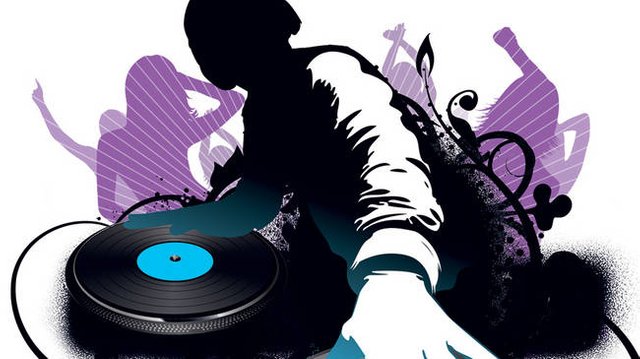DISC JOCKEY - Origin of the word
Old words often take on new meanings because of inventions and technology. And so it is with “jockey.” Fifty years ago, in America, this word was used as a noun – a professional horse rider- and as a verb, “to jockey” meaning to lead and steer a horse or something else into a good position.
In the 1920’s, radio began to enter American homes. News, comedy, drama and other forms to entertainment spread from cities to the countryside. Communications improved; many new words were added to the language.
Then, in the 1940’s, television appeared. Radio took a back seat. Most of the shows, except news, left radio and went on television. But radio stations still had to entertain. It was then that “jockey” took on a new meaning.

Across the country, thousands of radio stations began to play recorded songs. The records were also known as “discs.” Men who knew music, men who could talk and entertain, got jobs on the big city radio stations. Some of them became well known. And the music they chose to play had a great influence on those who bought records. In fact, song writers and recording companies sent records to the stations, hoping the entertainers would play them.
In time, a name was invented for these radio men who talked and played music. They were called, “disc jockey,” probably because they had an influence in making a song popular. They jockeyed (influenced) public taste in music, for many believed that whatever the disc jockeys played was good.
A disc jockey or “D.J.” as he is known today can be a very famous person in areas where his voice is heard. But his fame comes from his voice and the music he plays, not his face. And he probably would not be recognized if he walked down the street… much to regret of almost every “DJ.”
Because the term, “disc jockey” has spread across the country, it is not surprising that other kinds of jockeys have sprung up. For example, a person who pilots an airplane is called a “jet jockey.” And it is common today to hear a farmer called a “plow jockey,” because of the way he pushes his plow across his fields.
In the early 1920’s, the term was even applied to the sport of baseball. A sports writer, describing the action during a game, wrote that the players on the bench were yelling and shouting at the opposing players who were on the field.
The writer called them “bench jockeys,” no doubt because they were trying to influence the action on the field. Today, in America, “jockey” can be used for any person who leads or guides something or even himself into a better position or place, often at the expense of others.
But it is the “disc jockey” with whom we are most familiar. He is the one we hear when we turn the radio on. He plays music for us, gives us the weather report, tells us the time of day, and in general brightens up our day with little jokes and old sayings. And we wonder what American radio would be like without him.
if you like this info give me a vote and for more content like this follow me
Excellent post my friend! Im an electronic music lover, and im surprised that i didnt know at all the history of the term Disk Jockey! So i have to give a big thank you for that, and of course, upvote and resteem :D
Thank you for your interest in my article, in the next days I will be posting another articles about the origin of other words or popular expressions.